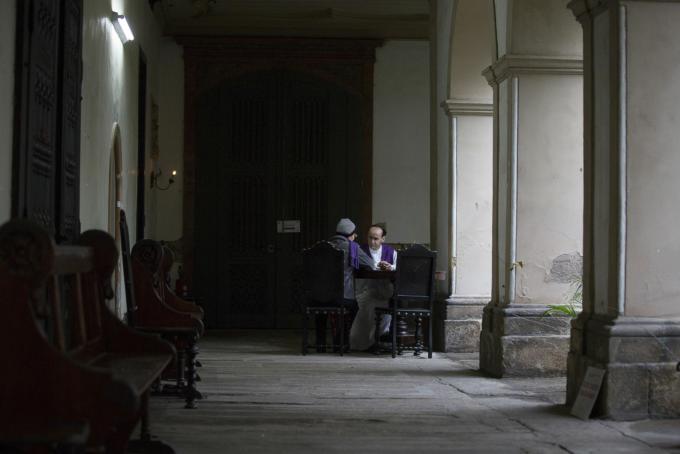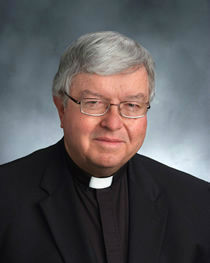
Faith
The teaching of the church is that the sacraments act -- to use a technical expression -- "ex opere operato," that is to say by the very fact of the rituals being performed.

Doyle
Q. I know of several Catholics today who refuse to go to confession because they feel that the priest might be a worse sinner than they are. But yet if they get sick, they want their parish priest to come immediately to give them a blessing. How can I explain to them their inconsistency? ("Confused" in Johnstown, Pennsylvania)
A. I am sure that your question is prompted -- in part, at least -- by the current crisis in the church over clergy sexual abuse of minors. Since 2002, when the U.S. bishops adopted a policy of "zero tolerance," no cleric credibly accused of this crime is ever allowed to remain in ministry. Thank God, the number of such cases has declined sharply since then, so it is unlikely that the priest hearing your confession today has ever been guilty of such a horrific act.
Does this guarantee that a confessor is spiritually and morally perfect? Of course not; human beings are not perfect people, so if perfection were a prerequisite, there would be no confessors at all. (Didn't Pope Francis say of himself in 2013 that "even the pope goes to confession every two weeks because the pope, too, is a sinner"?)
A priest, of course, should always strive to be a worthy minister of the sacraments -- in the state of grace and trying his best to reflect the sanctity of Christ. But perhaps it might comfort you to know that the efficacy of a sacrament does not depend on the state of soul of the priest who administers it.
The teaching of the church is that the sacraments act -- to use a technical expression -- "ex opere operato," that is to say by the very fact of the rituals being performed. So if a priest in a state of mortal sin were to hear a confession, the penitent's sins would still be absolved because it is really Christ who forgives sins in the sacrament and not the priest himself.
As the Catechism of the Catholic Church states, "From the moment that a sacrament is celebrated in accordance with the intention of the church, the power of Christ and his Spirit acts in and through it, independently of the personal holiness of the minister" (No. 1128).
Q. I have heard of families remembering baptismal days through special family meals. What are some other ways to commemorate the day of one's baptism? (Washington, D.C.)
A. Your question raises a good point. The day we were baptized marked a pivotal point in our lives, the moment when we first began to draw near to God through the power of the sacraments. Yet I think it would be safe to say that more than 90 percent of Catholics cannot tell you on what date they were baptized.
In January 2016, at a Sunday Angelus address, Pope Francis gave the audience what he called their "homework": to try to find out -- by asking their parents, godparents or parish -- the date of their baptism. "It is the date of our rebirth as children of God," the pope explained.
There are various ways of marking the anniversary of that date. Loyola Press has on its website the text of a "family prayer service," using a bowl of water, a Bible and a baptismal candle.
At the ceremony of baptism, as the baptismal candle is handed to the parents or godparents, the priest or deacon says, "This light is entrusted to you to be kept burning brightly. This child of yours ... is to walk always as a child of the light."
I usually add a few words of explanation, recommending to the parents that each year, on the anniversary of that baptism, the family might come together, light that same candle and pray for that child as he or she grows up.
- - -
Questions may be sent to Father Kenneth Doyle at askfatherdoyle@gmail.com and 30 Columbia Circle Dr., Albany, New York 12203.
- Father Kenneth Doyle is a columnist for Catholic News Service
Recent articles in the Faith & Family section
-
Scripture Reflection for April 21, 2024, Fourth Sunday of EasterJem Sullivan
-
The new Temple: How Easter changes religionDr. R. Jared Staudt
-
The wonder of Ordinary TimeLucia A. Silecchia
-
Is there still responsibility for past sins after confession?Jenna Marie Cooper
-
Wounds, not scarsJaymie Stuart Wolfe


















